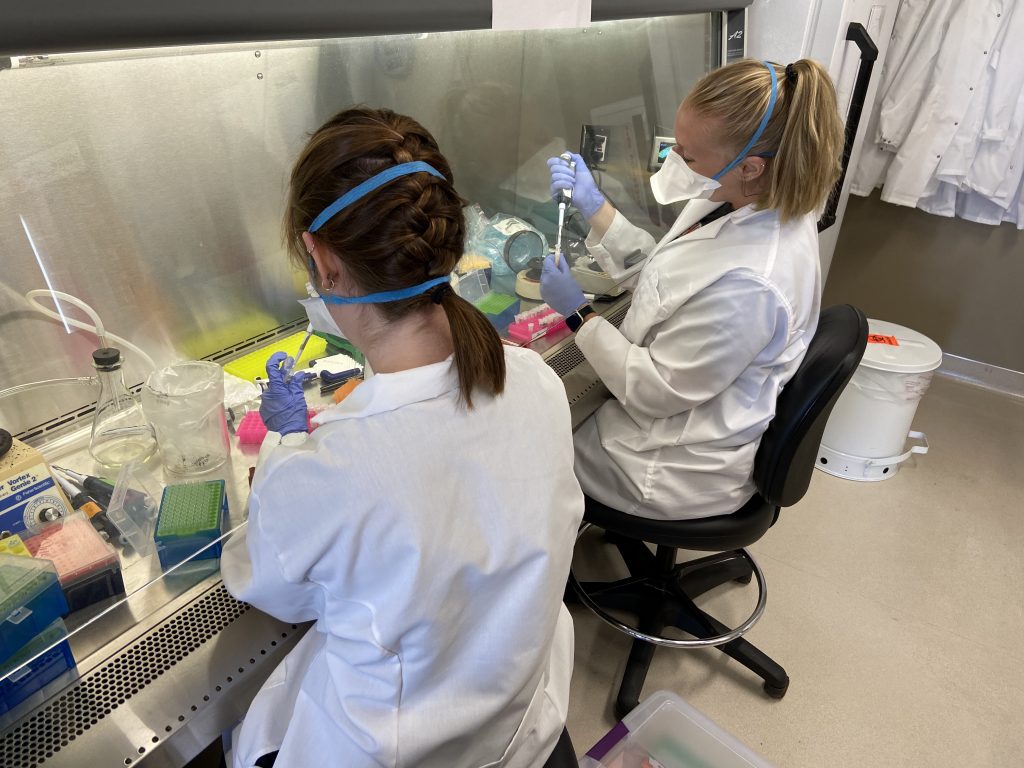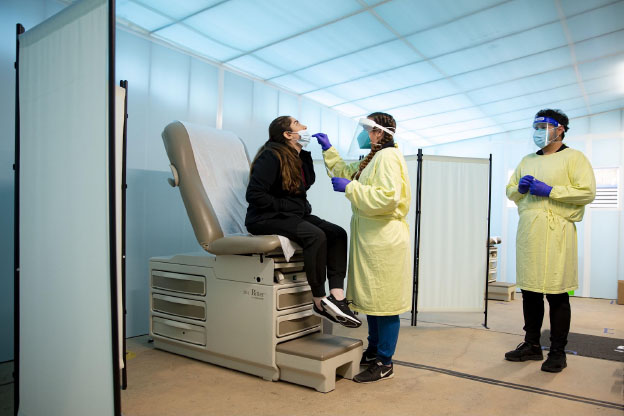The views and opinions expressed are those of the author and do not necessarily reflect the official policy or position of The Point. Letters to the editor and opinion columns are subject to editing for length, taste, grammar and clarity. Any content provided by our op-ed contributors are of their opinion and are not intended to malign any religion, ethnic group, club, organization, company or individual.
This article was collaboratively written by multiple authors in response to a student perspective on the quarantine system at PLNU. Read the article here.
Professor of Biology, COVID-19 Testing Lead: Kris Koudelka
Recently there was an opinion piece written by someone who had the very real and frustrating experience of needing to be quarantined because of COVID-19. As I read his viewpoint, I kept thinking about the successive improvements that have been made, allowing PLNU to be as open as possible during an active pandemic. At every turn it is students who make this feasible: Resident Assistants (RAs) delivering food and even doing laundry; nurses constantly reaching out to sympathize, care for and educate; the Wellness Center’s protocols to add freedoms for students as soon and safely as possible; and testing teams getting results quickly for the entire campus. All their work ensures PLNU is a protected campus that allows students to finally gather again with an extremely low risk of COVID-19 spread. Here are some selfless tasks our students and others are doing to help make this possible.
Student Nurses: Delaney O’Brien and Marisa Yamada
After an extremely hard year in quarantine, we all have been wishing for some normalcy on our PLNU campus. Being able to see friends, students and professors in a public setting is not a gift everybody is able to receive at this time. The Wellness Center plays a big role in opening up our campus as safely as possible.
Working at the Wellness Center as a student gives us the opportunity to work with symptomatic students, learn how to administer rapid antigen COVID tests and even evaluate positive students in the isolation dorms. In doing so, we developed a great appreciation for all the precautions, guidelines, check-ins and many COVID-19 tests. Though we experienced the obstacles of COVID-19 first hand, the work of the Wellness Center and COVID-19 response team gives us hope for a return to normalcy with students’ best interest and safety as a priority.
Student COVID-19 PCR Laboratory Testing Team: Jenna Moses
Working on the student testing team in the lab has been one of the greatest blessings and something I am immensely grateful for. While wading through 400-plus samples of saliva from my fellow classmates is not the prettiest or the most pleasant, this opportunity gives me and several others a chance to be back in the lab — something we missed for more than a year — as well as a huge opportunity to give back and help a university that has worked tirelessly to have any kind of normalcy. Being a part of the testing team allows us a chance to use our scientific knowledge to help our campus get ahead of possible spikes in cases. Nearly every day of the week there are students in the lab for five to seven hours working to get students their results as quickly as possible, sometimes even within the same day. It is a great opportunity for our school to be able to process samples within our own labs, and it should not be taken for granted. We might be hidden behind lab coats and N95s, but the testing team loves this school and wants to continue to help in any way possible.

Student Development Residential Assistant and Meal Delivery: Sophie Olmstead
I can attest the strong effort and care that Residential Life and the cafeteria put into serving quarantined or isolated students. I have been doing meal deliveries since last semester. Each student is able to state their dietary needs and certain food preferences. Residential Life hires plenty of RAs to deliver meals in a highly organized way so that food stays at the appropriate temperature upon arrival. Each mealtime, there is a delivery coordinator who counts the amount of meals and delegates locations to the RAs present. This is all seen on a spreadsheet that the RAs double check. When I deliver meals, I try to interact through the door and ask the student what drink or dessert they would like if I have options. Additionally, I have seen my Resident Director (RD), Kayleigh Hofer, work hours on end on policy for people in quarantine in order for them to have the best and safest situation possible. This team continues to be in contact with the student, making sure they are comfortable mentally, emotionally and physically amid a very tough situation.
All in all, students are not getting left behind in this process. On the contrary, I would argue PLNU has done a fantastic job in the organization, planning, training and overall care of students. Of course quarantine can be incredibly difficult, but as a meal delivery RA, I am extremely impressed with the continual effort made by PLNU.
Professional Nursing Staff: Kristen Kellogg NP, Rachel Hyden NP and Johnny Gomez RN

Our PLNU COVID healthcare team knows quarantine and isolation can be an extremely difficult time. However, quarantine and isolation are never used as punishment, but rather to help keep others healthy. Quarantine is a useful method to reduce exposure by separating those who may become positive from those who have no additional risk factors.
The coronavirus can incubate for 2 to 14 days. For most people, symptoms usually show between days five through seven. The CDC recommends that those released early from quarantine — after a negative test between days five and seven — should continue to symptom check and follow strict social distancing until day 14 after exposure (PLNU’s modified quarantine). We estimate that quarantine prevented approximately 38 exposures in the month of March on PLNU’s campus. Our goal is always to care for and prevent COVID-19 cases on campus.
Professor of Biology, COVID-19 Testing Lead: Kris Koudelka
This pandemic brought significant loss in so many different ways, some enduring more than others. But there are heroes in our midst! Many more than those listed above. You may regularly walk by Diana Prince or Clark Kent every day and not know they are COVID-19 Wonder Women and Supermen helping protect and keep campus open. Even though we might not know them all by name, we are grateful for them.
